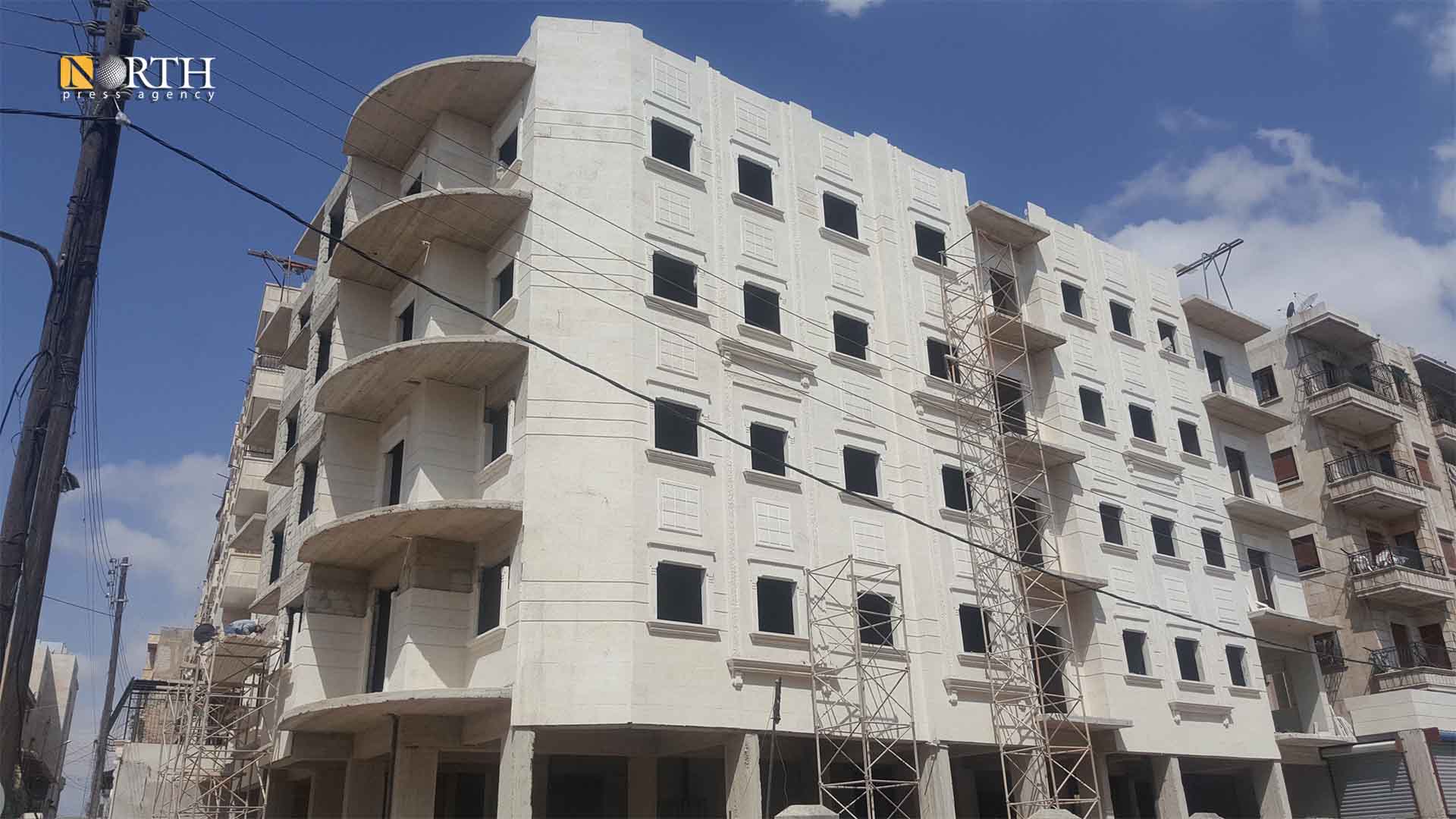ALEPPO, Syria (North Press) – Residents of the city of Aleppo, northern Syria, accused the government of hindering the process of buying and selling real estates by limiting the process through banks by freezing parts of the entire amount of money and setting a lower selling to the frozen amount. The residents considered that to be a “negative intervention” in the market.
In March, the Syrian Council of Ministers published an amendment to the Decree No. 221 of 2020, which obligates the payment of at least five million Syrian pounds (SYP) through banking channels for the sale of residential and commercial real estate and vehicles, in addition to freezing 500,000 SYP in the accounts used for sale operations.
In January 2020, the Councils of Ministers issued a law that required limiting the completion of buying real estates and cars’ contracts through paying by public banks.
The residents believed that this law makes the government the only beneficiary; that is to refresh its economy in light of the American sanctions.
“The bank forces the buyer to deposit at least five million SYP in the bank so that the seller withdraws the amount in subsequent installments, provided that the daily withdrawals should not exceed two million SYP,” Samiya Muhammad, a pseudonym for a manager of a bank in Aleppo, said.
According to the law, the frozen amount of 500,000 SYP cannot be withdrawn unless three months pass starting from the day of deposit.
Future disputes
“When the government set a minimum level of the amount of deposit of any purchase operation, it caused future disputes between the seller and the buyer,” Muhammad added.
Very occasionally, the seller requires the receipt to pay the total amount in one go, then, he returns the retained amount later when the date of receipt comes, which he may not return and deny receiving, according to the manager.
The same problem occurs in the event of the death of the seller and the failure of the heirs to recognize the amount existed in the seller’s account, so the case is transferred to the courts, which takes months to be settled.
The issued law included all sales prior to the issuance of the law, “therefore, other more complex disputes arose, when the value of the property sold earlier was less than five million SYP, but in implementation of the decision, the buyer is forced to deposit five million SYP into the seller’s account even though the price of the property is less than five million SYP,” according to Muhammad.
In 2010, Fu’ad al-Seddiq, a resident from al-Sakhour neighborhood in Aleppo, bought a small shop in the neighborhood from his neighbor for two million and a half SYP, provided that he pays the entire amount later, as they know each other so they trust each other.
Al-Seddiq completed the payment in 2013, “but we did not completed the procedures of transferring the ownership due to the intensification of the battles in the city and the displacement of each one of us to a different area.”
“After several years we met to complete the procedures, but, we were shocked by the new law,” he added.
Fraudsters under security protection
Three days after al-Seddiq deposited five million SYP, his neighbor died, “and his children did not recognize the deposited amount in the bank in their father’s name. So, I had to file a lawsuit against the heirs in the court, which has not yet decided the case.”
Due to the law, the buyer paid the price of the shop twice, “first, one million and a half, as we agreed upon, and second, five million SYP.”
According to residents, in the event of transferring an amount from one account to another in the same bank, a message is immediately delivered which provides that the receiving account has received five million SYP, but when an amount is transferred from one bank to an account, the message is delivered late between 8 and 12 days.
Mahmoud Mu’azen, a resident from Salaheddin neighborhood, who has displaced to Turkey since the beginning of the Syrian war and returned to Aleppo early in 2019, was shocked when he found a family residing in his house “claiming it has bought it legally.”
After he filed a lawsuit entitled “force real estate” on the family residing in his house, investigations indicated that the family has bought the house from a real estate agent by a forged contract, whom the family knows nothing about, according to Mu’azen.
A special source from the Internal Security revealed that a network of 60 persons, who master fraud through selling the absentee’s properties by forged contracts, was captured.
Mu’azen pointed out that process was done “by agreeing with persons of the security forces to facilitate the selling process and not showing that the property was seized and the sale process is a fraud.”
“These processes were carried out with the participation of some persons of the security forces; those of great influence controlling the foundations in Aleppo,” a source form the Internal Security Forces stressed.

